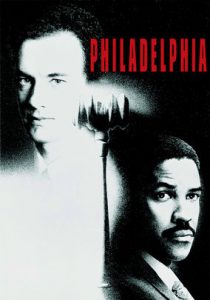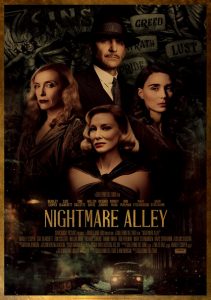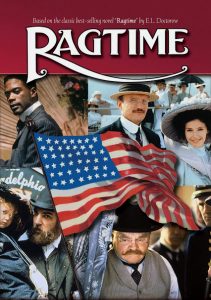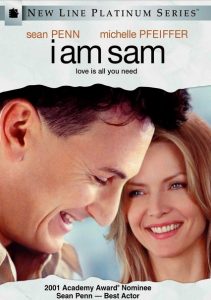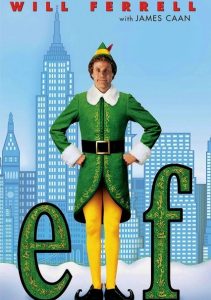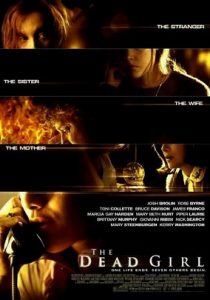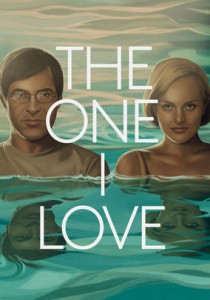Philadelphia-1993
Director Jonathan Demme
Starring Tom Hanks, Denzel Washington
Top 250 Films #171
Scott’s Review #782
Reviewed July 3, 2018
Grade: A
Having the powerful distinction of being one of the first Hollywood LGBT films to deal with heavy issues such as HIV/AIDS and homophobia, Philadelphia (1993) is a film to champion.
The film does contain some less-than-positive stereotypes across the board, but was a tremendous box office success and more importantly introduced a large audience to a still (at that time) taboo subject.
Hopefully, this had a tremendous effect on creating an understanding of a vicious disease and its ramifications.
Tom Hanks deservedly won the Best Actor Oscar for his lead performance of an AIDS and discrimination victim as did the heartbreaking theme song “Streets of Philadelphia”, penned by Bruce Springsteen, win for Best Original Song.
Director Jonathan Demme creates a world quite realistic in portrayal at the corporate level. Hotshot attorney Andrew Beckett (Hanks) has a promising future at one of the country’s largest law firms in Philadelphia.
Assigned a high-profile case, it is noticed that Andrew has developed lesions across his body and is subsequently fired from the firm. After deciding to sue the firm and having no luck finding an attorney to represent him, he finally meets struggling black attorney, Joe Miller (Denzel Washington), who begrudgingly takes the case to gain exposure.
Philadelphia is a film that is a courtroom drama with a cause and is firmly ensconced in the “message movie” genre. A lesser version, and perhaps one made even a decade or so after 1993, might be reduced to the Hallmark television movie category.
Fortunately, the timing is perfect and Philadelphia can be remembered as a film championing LGBT rights.
Hanks’s performance is just dynamic- his character is meant to be empathetic, a victimized man unjustly suffering not only discrimination but a death sentence. The audience knows what is to come and as Andrew loses more weight and appears more sullen and haggard, the tale increases in sadness.
The final act of Andrew’s court victory is to be celebrated, but also is heartbreaking as a feeble and dying Andrew now lies close to death.
Hanks brilliantly infuses Andrew with courage, heart, and values, so much so that he becomes a hero to the audience even if their sexuality is different than his.
As much as the undying love for Hanks is deserved, the powerful supporting cast is a treasure. Washington is not as sympathetic a character as Andrew is, but learns a lesson and eventually leaves his machismo on the sidelines.
The heart-wrenching death scene culminating in the hospital room involves lover Miguel (Antonio Banderas), surrounded by Andrew’s family, all-embracing as one. There is beauty mixed with tragedy in this one scene alone.
Even Mary Steenburgen as the tough defense lawyer shows some heart. And who can say more about the dynamic Joanne Woodward as Andrew’s mother?
Unfortunately, there are a few stereotypes to endure, and sadly many early LGBT films (and some still do!) include these for emphasis- or perhaps ignorance? Nonetheless, these make the film seem slightly dated given the LGBT progress made in the decades since the film was released.
Joe Miller is portrayed as a macho guy afraid to be viewed as gay- he even jokes around about being a “man” with his wife. Joe also grimaces when he shakes hands with Andrew and suddenly realizes Andrew has AIDS.
Nearly all of Andrew and Miguel’s gay friends are effeminate- this hardly seems possible.
Such is a monumental achievement when a film breaks barriers by telling a story of critical importance. Philadelphia (1993) does just that by patiently asking its audience for tolerance, understanding, and heart.
In return, the film educates, floods with emotion, and breaks hearts. Other LGBT films would come along that were arguably even better, but Philadelphia is a groundbreaking experience sure to be remembered as the first of its kind.
Oscar Nominations: 2 wins-Best Actor-Tom Hanks (won), Best Original Screenplay, Best Original Song-“Streets of Philadelphia” (won), “Philadelphia”, Best Makeup
